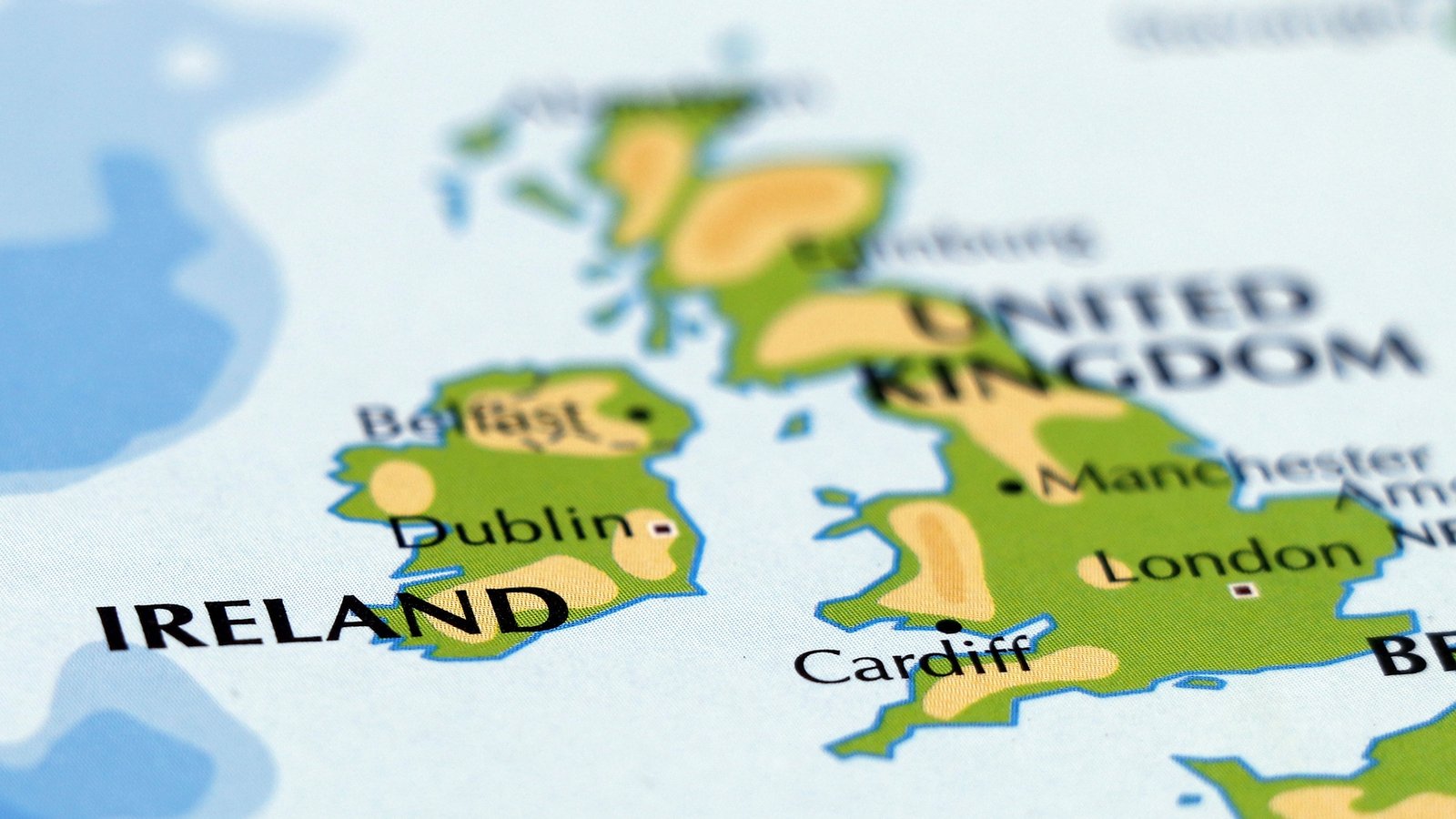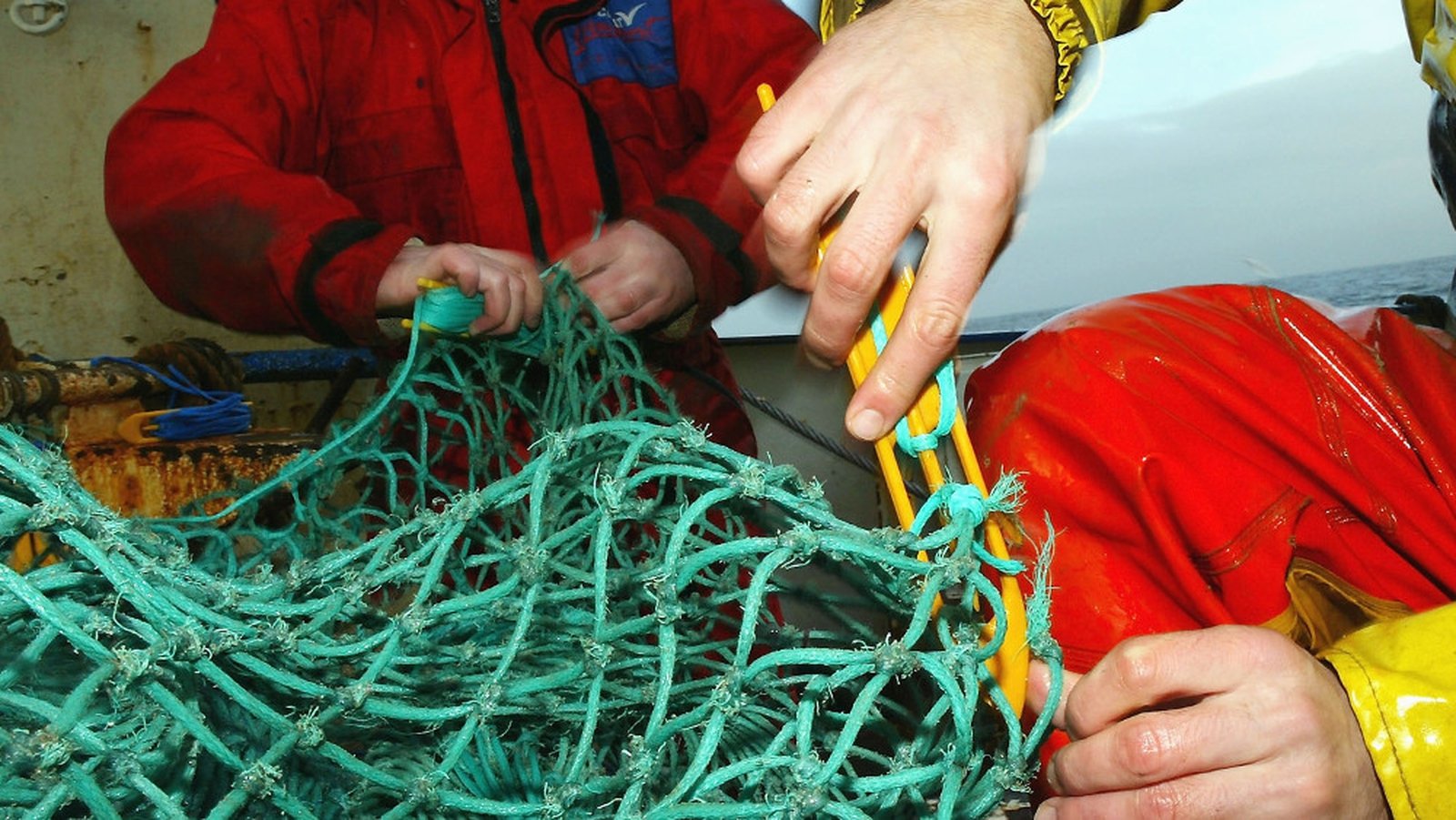UN says gang violence in Haiti is becoming worse

From the moment she heard the news, Sister Jean Quinn was tormented with worry for the six Catholic nuns abducted by a gang in Haiti.
“I was sitting in my apartment thinking, what do I do now? Who do I call on a Sunday?” Sr Quinn, from Co Sligo and now based in New York as executive director of UNANIMA International, a religious NGO, told RTÉ News.
“I felt frightened and immobilised,” she said.
The six Haitian nationals, who are members of Sr Quinn’s organisation and belonging to the order of the Sisters of Saint Anne, were kidnapped at gunpoint in broad daylight on the busy streets of the Haitian capital Port-Au-Prince, along with their driver and a student.
The gang demanded $3 million (€2.7 million) for their return.
Springing into action, Sr Quinn set about frantically calling UN diplomatic missions, including the Irish delegation and the Observer Mission of the Holy See, to see who could help.
Kidnapping is an all too familiar tale in a country in the grip of vicious gang warfare.
The UN estimates that more than 6,000 people were killed or injured during 2023, and more than 2,000 kidnapped.
And things are only getting worse.
January was the most violent month the UN has recorded for two years.
As well as murder, maiming and lynching of citizens, a recent UN report found that gangs use sexual violence against women and girls as a weapon to “spread fear and harm the populations living under the control of rivals.”
Female victims of kidnapping are also frequently subjected to rape by multiple captors throughout their captivity, the report found, in a tactic to extract higher ransoms from family members.
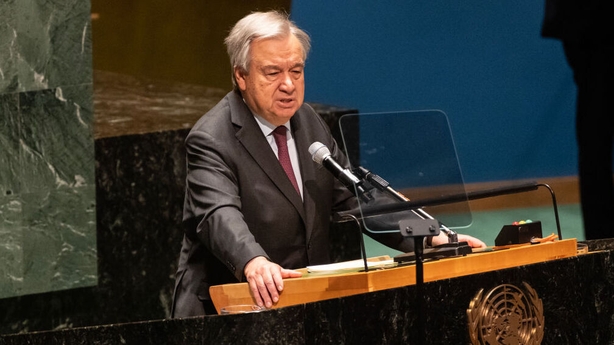
Last year, the United Nations Secretary General António Guterres called on member states to step up to help the people of Haiti who he said were “trapped in a living nightmare”.
In a rare moment of unity last autumn, the UN Security Council agreed on the Secretary General’s idea of deploying a multinational force to the Caribbean island.
The US offered to fund it to the tune of $200 million (€185m), while Kenya stepped forward to lead it, promising 1,000 police officers.
Other countries pledged they would join.
But last month that plan faced issues, when a Kenyan court ruled that sending police overseas was “unconstitutional”.
The Secretary General renewed his increasingly desperate plea for the removal of “all obstacles” to the deployment of a multinational force in a speech to the General Assembly last Wednesday.
Council diplomats told RTÉ News they believed the force would still go ahead, but acknowledged the delay was problematic, as the situation on the ground deteriorates.
“Every day that passes, more casualties are being recorded,” the UN High Commissioner for Human Rights Volker Türk said yesterday.
“Now, more than ever, Haitian lives depend on the deployment, with no further delay, of the Multinational Security Support Mission in Haiti (MSS), to support the national police and bring security to the Haitian population, under conditions that comply with international human rights norms and standards,” he said.
Human rights groups continue to raise concerns about police brutality in Kenya.
The human rights group point to a record of extrajudicial killings, forced disappearances and questions over their suitability to lead a multinational force.
The UN has said that strict vetting procedures would be followed for deployed personnel.
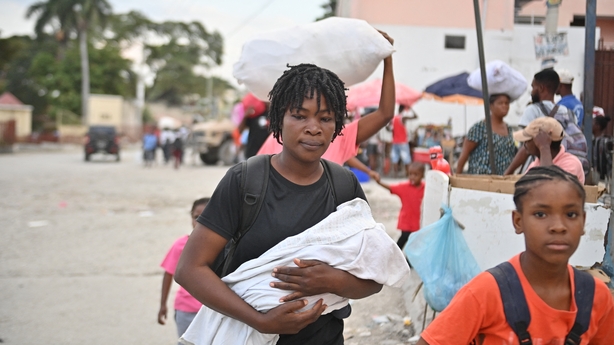
But while the United States has been pushing for the creation of a multinational force for Haiti, UN officials have pointed to the persistent flow of weapons from American gun manufacturers to Haitian gangs.
In a briefing to the Security Council in January, executive director of the UN’s Office on Drugs and Crime Ghada Waly said illicit arms were feeding “a vicious circle” of gang-related activity and drug trafficking.
As long as gangs continued to have access to “highly sophisticated firearms,” she told the Council, they would remain capable of subjecting the Haitian population to “a reign of terror”.
She said her office had identified four major sea and land routes as well as a number of clandestine airstrips in Haiti being used for illicit firearm and ammunition flows, mainly from the United States.
“They represent a blind spot that is possibly being used by traffickers and smugglers, bearing in mind that smaller aircraft flying directly between the United States and Haiti are difficult to monitor,” Ms Waly told the Council.
Asked by RTÉ News what the United States was doing to tackle the illegal flow of arms to Haiti, a spokesperson for the US mission to the United Nations said that the Biden administration had signed the Bipartisan Safer Communities Act into law last summer.
The new law dramatically increases penalties for “straw purchases” which is an illegal firearm purchase where the actual buyer of the gun “uses another person who can pass the required background check to purchase the firearm for him or her,” the spokesperson told RTÉ News.
It also applies further penalties “if the firearms or ammunition are smuggled out of the United States with intent to engage in or promote transnational organized crime,” the spokesperson said.
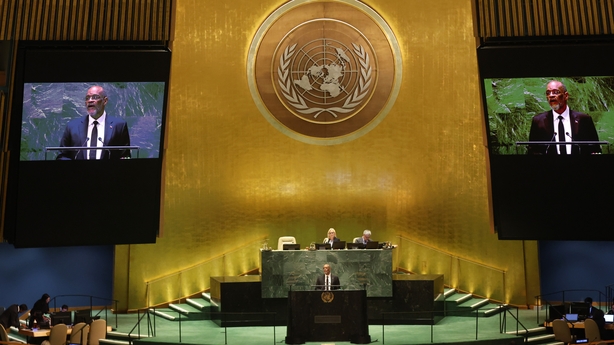
But as gangs continue their “reign of terror,” UN officials told RTÉ News there was still a long way to go to suppress the flow of weapons from the US into Haiti.
“It’s about enforcement and it’s really infuriating,” William O’Neill, the UN’s Independent Human Rights Expert for Haiti told RTÉ News.
He said 90% of the weapons get shipped out of the Port of Miami in the US state of Florida.
“It would be easy to inspect the boats, if the will was there,” he added.
Across the backdrop of unabating gang violence, protests have spread across Haiti in opposition to the rule of Prime Minister Ariel Henry.
Many Haitians see Mr Henry’s rule as illegitimate because he seized power in the wake of the assassination of former leader, Jovenel Moise in 2021 and has failed to hold elections since.
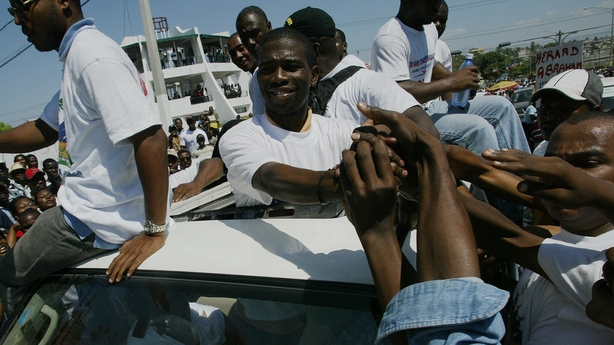
This week, into this already explosive situation stepped the former rebel leader Guy Philippe, fresh out of federal prison in the United States on drugs trafficking and money laundering charges.
Philippe led a rebellion in 2004 which overthrew the then Haitian President Jean Bertrand Aristide.
He was sentenced to life in prison in 2017, by a Miami judge but struck a plea bargain, serving only six years before his deportation to Haiti in November.
Now he is back on home turf calling for a revolution.
His sudden reappearance in the crisis-torn country is a worrying “wildcard,” according to Mr O’Neill.
He described Philippe’s connections as “very, very murky.”
“What are his ties to the gangs, to the oligarchs? What’s the relationship to the political actors? It’s very unclear,” he said.
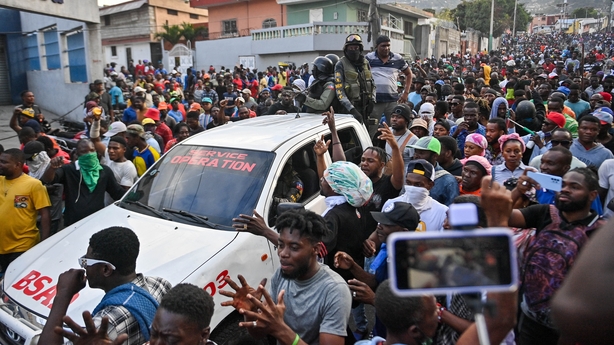
At the same time, new armed elements have emerged, Mr Türk said, including the ‘Protected Areas Security Brigade’ (in French, Brigade de Sécurité des Aires Protégées or BSAP), an informal entity established several years ago by a body in charge of environmental issues.
The group which has clashed with Haitian security forces is believed to be close to Philippe.
Mr O’Neill said he was urging everyone to take Philippe’s return very seriously.
“This is no joke,” he said.
In the case of the six nuns, the Irish Mission to the United Nations connected Sr Quinn with mediators on the ground.
And her appeal to the UN observer mission of the Holy See went all the way to the top, with Pope Francis delivering a Sunday address calling for the release of the women.
The following week, Sr Jean received another call, this time informing her they had been released.
It is unclear whether a ransom had been paid to the captors.
She received the news with “exhaustion and relief,” she told RTÉ News.
But she remains concerned that religious orders are now being targeted more frequently by the gangs, who believe they can get a good price for them, she said.
“We are all vulnerable,” she added.

